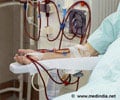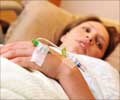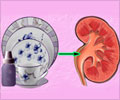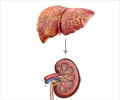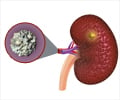Q: Which doctor should I consult for acute renal failure?
A: A Nephrologist should be consulted.
Q: What increases my risk for Acute Renal Failure?
A: Acute Renal Failure (ARF) is seen more often in people already in the hospital for another serious problem.
Other risk factors include:
- Severe dehydration like in cases of severe blood loss (hemorrhage), shock, severe vomiting or diarrhea and overuse of diuretics.
- Decreased cardiac output like in heart attack, abnormal heartbeats (arrhythmia), high blood pressure, inflammation of heart tissue (endocarditic), disease of the heart valves.
- Other causes of circulatory disturbance like Nephrotic syndrome, advanced liver disease (cirrhosis) severe malnutrition, burns, severe injury or crushing injuries, severe infection (sepsis).
- Concomitant use of drugs which are likely to be harmful to the kidneys like Non Steroid Anti-Inflammatory Drugs or NSAIDs, Antibiotics like Amikacin or gentamicin from the aminoglycoside group.
Q: What are the medications that can cause Acute Renal Failure?
A:
- Antibiotics such as - aminoglycosides group of antibiotics, cephalosporins, amphotericin B, bacitracin, vancomycin are some of the drugs.
- Blood pressure medications (angiotensin-converting enzyme [ACE] inhibitors) eg. captopril and ramipril.
- Chemotherapy medications, such as cisplatin, carboplatin, and methotrexate.
- Contrast media used in medical imaging studies.
- Illegal "street" drugs, such as heroin and methamphetamine.
- Medications used to treat HIV (protease inhibitors), such as indinavir and ritonavir.
- Nonsteroidal anti-inflammatory (NSAIDs) Medications, such as ibuprofen, ketoprofen, rofecoxib, Indomethacin and celecoxib.
- Ulcer medications such as cimetidine.
- Other chemicals, such as insecticides, herbicides, and ethylene glycol, can also cause ARF.
The non steroidal anti-inflammatory drugs should not be taken without prescription and should be avoided if possible.
Q: What is End Stage Renal Disease (ESRD)?
A: End-stage renal disease (ESRD) occurs when kidney damage is so severe that dialysis or a kidney transplant is needed to control symptoms and prevent complications and death. ESRD often occurs after kidney damage has been present for 10 years or more. Diabetes and high blood pressure are the most common causes of ESRD.
Kidney failure can be measured by how well the kidneys are able to filter wastes from the blood (Glomerular Filtration Rate, or GFR). ESRD usually occurs when the GFR falls 10% to 15% below what is expected in a person with normal kidney function.
Heart disease is the most common cause of death in people with end-stage renal disease.
Q: What is uremic syndrome?
A: Uremic syndrome (uremia) is a serious complication of chronic kidney disease. It occurs when urea and other waste products build up in the body because the kidneys are unable to eliminate them. These substances can become poisonous (toxic) to the body if they reach high levels. Prolonged or severe fluid buildup (edema) may make the uremic syndrome worse.
Uremic syndrome may affect any part of the body and can cause:
- Nausea, vomiting, loss of appetite, and weight loss. Changes in mental status, such as confusion, reduced awareness, agitation, psychosis, seizures, and coma. Abnormal bleeding, such as bleeding spontaneously or profusely from a very minor injury.
- Heart problems, such as an irregular heartbeat, inflammation of and excess fluid in the sac that surrounds the heart (pericarditis), and increased pressure on the heart.
- Shortness of breath from fluid buildup in the space between the lungs and the chest wall (pleural effusion).
- Dialysis is usually needed to relieve the symptoms of uremic syndrome until normal kidney function can be restored.
Q: Is there any home treatment or surgery available for acute renal failure?
A:
- There is no home treatment for Acute Renal Failure (ARF)
- If there is a blockage in the urinary system (stones, tumors or abnormal prostate enlargement) it is possible to relieve these and hence improve the acute renal failure situation using surgery. But there is no surgical treatment for Acute Renal Failure (ARF).
- Short term dialysis maybe required till the kidney fully recovers.
Q: Can acute renal failure lead to chronic kidney disease?
A: Rarely this can occur. If it does happen your nephrologist may talk to you about kidney transplantation.
Q: What is hemodialysis and how is it connected to acute renal failure?
A: Hemodialysis is a mechanical process that partly performs the work of healthy kidneys. Hemodialysis uses a man-made membrane (dialyzer) through which blood is pumped to filter wastes, remove extra fluid from the blood, restore the proper balance of chemicals in the blood, and eliminate extra fluid (edema) from the body.
Q: Can dehydration cause kidney failure?
A: Yes, severe or sudden dehydration can cause kidney failure. When the body is dehydrated, it can’t adequately circulate blood and the waste it carries. Consequently, waste products like creatinine and urea nitrogen accumulate in the body which may lead to complications. However, kidney problem because of dehydration can be treated well if detected and treated in the initial stage.
Q: What is an acute kidney injury?
A: Acute kidney injury is a sudden damage to the kidneys that causes them not to work properly. It can range from minor loss of kidney function to complete kidney failure.
Q: What is the most common cause of acute renal failure?
A: Acute renal failure can occur for many reasons. Among them, the most common causes are: acute tubular necrosis; severe or sudden dehydration; toxic kidney injury from poisons or certain medications; autoimmune kidney diseases, such as acute nephritic syndrome and interstitial nephritis; urinary tract obstruction.




